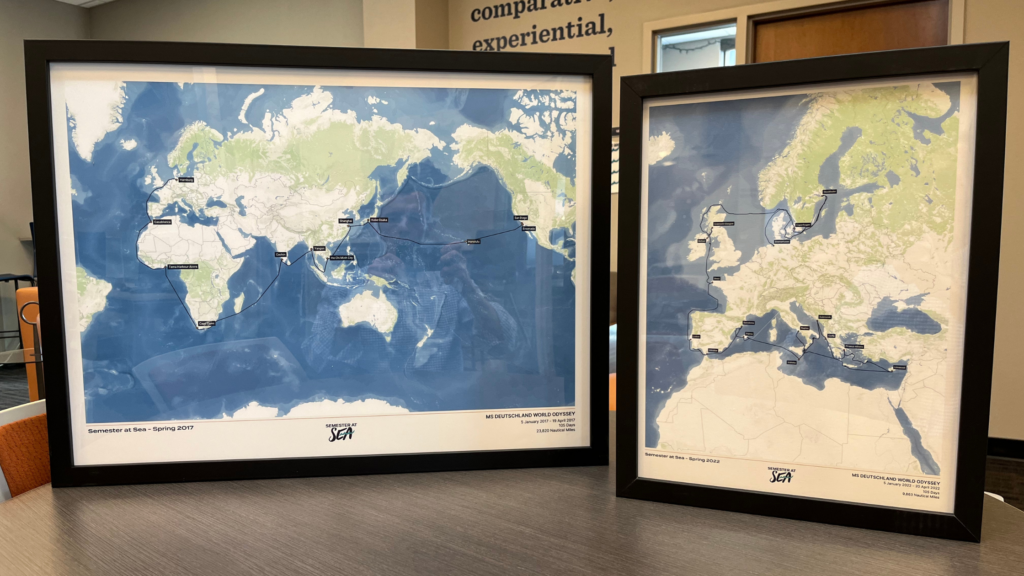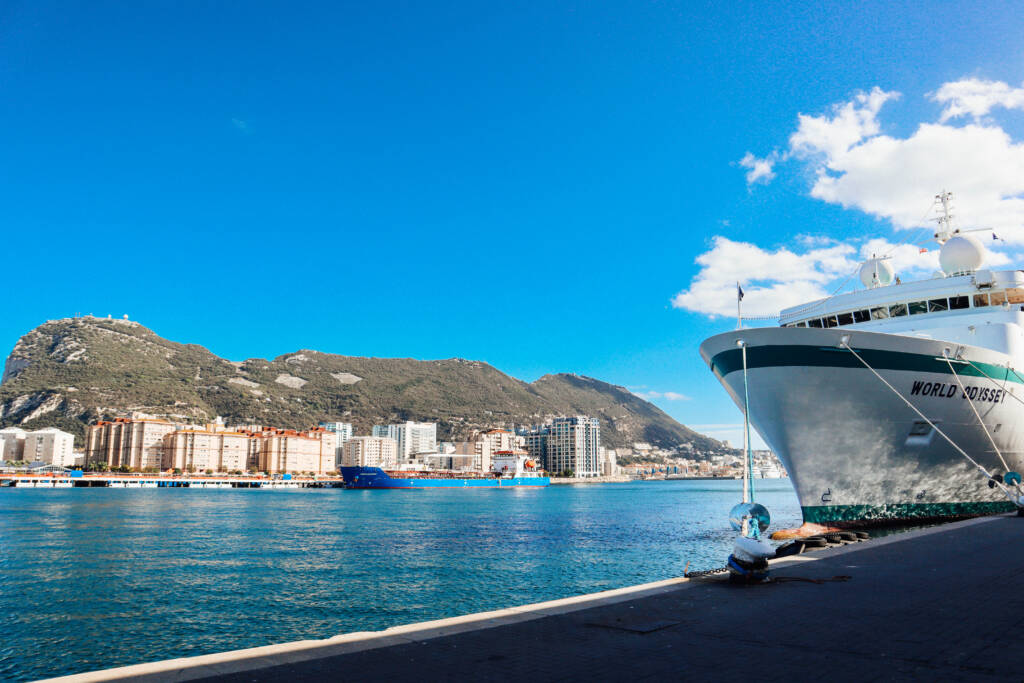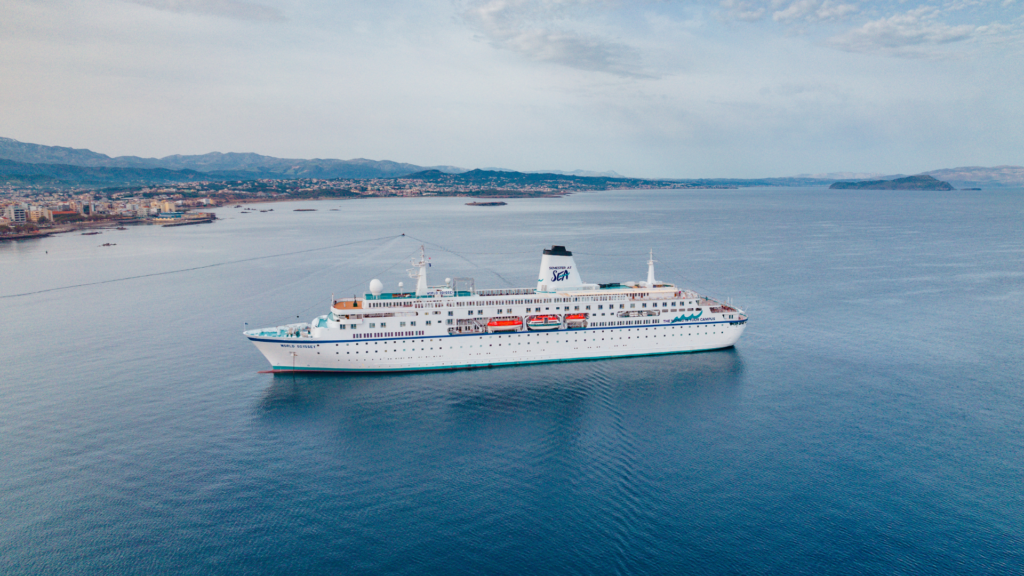
Photo by Friday Apaliski
It’s rare that any person has the opportunity to truly weigh all sides of any story, especially when it comes to war. In Professor John Cerone’s International Prosecution class his students were able bring to life their studies of the Yugoslav Tribunal and the Yugoslav Wars during their visit in Dubrovnik, Croatia.
This classroom field lab was created to allow the students to experience three different levels of analysis; legal, political and moral. With this information students learn to distinguish each of these levels separately as well as undertake the task of analyzing them critically.
Up to this point the class has focused on the legal analysis of the conflict. As we drive past old town Dubrovnik and past some of the most lush green islands in Croatia, Cerone, who has served as a legal advisor to several international criminal courts, refreshes the students on some of the legal principles that guide any discussion of war.
He reviews the rules protecting the natural environment, as well as civilian life and property. The principle of distinction and the concept of collateral damage, the notion that otherwise protected buildings and other objects can lose their protection when used for a military purpose.
From a political standpoint this conflict has a different appearance. Of course there are multiple political perspectives to review; the international perspective and the perspectives of the parties to the conflict, including the local Croatian perspective.

Photo by Friday Apaliski
As students tour Kupari, a once thriving tourist destination now reduced to shelled buildings, their guide, Dea, tells her family’s story.
My father stayed to defend Dubrovnik. Men weren’t allowed to leave Dubrovnik; they had to stay and fight. Ladies and children were they only ones allowed to go. My mother, sister, and I went with the last boat, on the 6th of Dec, the really bad day for Dubrovnik. It was the last boat. All the rest of the boats, and the port, were destroyed. They told us we must go first to Montenegro instead of a safer place because Montenegro was a checking point; they wanted to take all our gold and money. My sister and mother were putting everything in their underwear because we needed money later on to live. We stayed there for two days in port, with rain, without food or anything. Then we went to some safer place. And we were lucky, because all the other boats were bombed. They [the Serbs] weren’t thinking about women or children, they were just bombing everything, all the boats. I was 4 and those were my first memories. I was lucky my father survived, but many of my friends lost their mother or father.
My friend’s father was taken Morie in Montenegro. Many solders were captured and taken there for three years. Now he is working in tourism, driving a coach, and going with tourists to Montenegro and passing through Morie every day, the place where he was for three years captured and tortured. And it’s not very easy to forget and forgive those things.
Local Guide, Dea
From here the students visit Dubrovnik war museum, which tells the story of the war from a clearly less-than-objective narrative. And before the day ends they get one more dose of Croatian politics from the native guide, Dea.
The people here from Croatia, they don’t think [the Tribunal] is right. They think they are spending a lot of money on the tribunal and it’s not worth anything. A lot of time passed and we had on both sides a lot of bad things. It’s public opinion that [the Croatian Generals] are good, they are not bad, they are not in charge of everything, they were just fighting for us and maybe if they were not fighting for us we wouldn’t all be here alive and the war would end in some other course. So we all think that it’s not right that they are now in jail. And those are only 2-3 men, there was a whole army, and only 3 are in jail. It’s my subjective opinion, I think its’ not right. It wasn’t our fault, we didn’t start it, we just wanted our country to be safe, and we didn’t want the war, we didn’t want that to happen.
Local Guide, Dea
Cerone is a great moderator of this experience. He helps the students navigate the different voices they hear as they travel Dubrovnik and learn about the war. He is careful to make sure students don’t get too caught up in the rules and politics of war without missing the overall question of morality.
We also want to look at the human side of this war, not always just be concerned about the legality of conduct. There is a lot that can be done during armed conflict that is perfectly lawful but is still inflicting a great deal of harm and suffering, especially if you are among the population being injured. For example it is perfectly lawful to purposely kill soldiers. These men [like Dea’s father] were automatically conscripted by the Croatian government to be solders, and once that happened murdering them became perfectly lawful, but it’s still someone’s father, somebody’s brother, and somebody’s son. Just because it is legal it does not mean that it is moral.
Remember we have to look at these situations on a number of levels. The legal level is important for assigning responsibility for violations of legal rules because there are certain consequences that are then required; obligations to make reparation and obligations to prosecute crimes. But we also don’t want to forget that even lawful acts of war are harmful and cause suffering. Just by doing this legal analysis we don’t want to lose the human side or the human perspective of the things we are witnessing.
Professor John Cerone
Cerone also reminds the students of the limits of law. In the context of the Yugoslav conflict one of the major questions was whether Croatia’s secession was lawful. The Croatian government said yes and Belgrade said no.
Once you have this kind of division of opinion the legitimizing force of law is gone. And in a way the legal question becomes irrelevant. The validity of a legal determination depends on acceptance by a community and in this case the relevant community would include both the Serbs and the Croats.
Professor John Cerone
In any regard, war is complicated, and the Yugoslav Wars were no different. With this experience the students are able to reflect on the complexities of not just international law but the effects and repercussions it has on a country first hand.

Photo by Friday Apaliski




